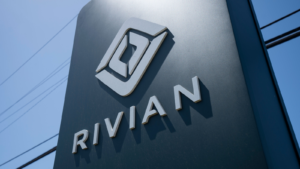These three EV stocks are some of the best picks to bank on amidst the industry’s weakness. The first is the Chinese EV juggernaut BYD (OTCMKTS:BYDDY), which knocked Tesla (NASDAQ:TSLA) off its perch and made it the top EV company globally. Next, we have Rivian (NASDAQ:RIVN), who’s on the comeback trail through superior management and superb operational performance. Finally, Li Auto (NASDAQ:LI) boasts a robust cash buffer and industry-leading bottom-line metrics.
Hence, investors keen on diversifying within the EV space should wager on these EV stocks for healthy gains.
BYD (BYDDY)

BYD is the global frontrunner in the EV market, beating Tesla last year to become the largest EV car seller by market share. Its breakout success has plenty to do with its vertically integrated business, which covers everything from the production of its computer chips to owning lithium mines that are critical for battery production.
Despite the industry headwinds, BYD continues to grow rapidly. Its most recent update announced a 38.1% surge in new energy vehicle sales for May, totaling 331,817 units. This boost was led by a 54.1% increase in plug-in hybrid electric vehicles (PHEVs) and a 22.4% increase in battery electric vehicle (BEVs) sales.
Moreover, its attractive product lineup lays the foundation for sustained growth. It continues to innovate, as seen with the introduction of its ‘Shark’ pickup truck, a potent challenger to Tesla’s Cybertruck and its budget-friendly EV in ‘Seagull.’ These advancements highlight the firm’s dynamic market positioning, poised for continuous and robust growth.
Rivian (RIVN)

Rivian is another interesting EV play, following a steep price drop in the past year. RIVN stock is down more than 50% year-to-date (YTD) and over 90% from its peak. However, its terrible stock price performance has had little effect on its strong operational performance.
Over the past four consecutive quarters, Rivian has consistently demonstrated strong sales growth, surpassing analyst estimates. Despite some concerns about its margins, the company’s over $10 billion cash reserves provide a strong financial cushion, mitigating the risk of bankruptcy. Furthermore, the company’s projected improvement in loss-per-share from $3.98 this year to $ 2.44 in 2025 is a positive sign for its future financial performance.
Furthermore, its future looks promising, bolstered by its partnerships and significant volume of preorders. Notably, eCommerce giant Amazon (NASDAQ:AMZN) plans to deploy 100,000 Rivian EVs by the end of the current decade, underscoring its confidence in Rivian’s long-term potential. Also, the EV upstart plans to launch its latest models, the R2, R3 and R3X, all priced competitively to break into the mass market.
Li Auto (LI)

Li Auto is another attractive EV pick that’s been hammered by the stock market in the past 12 months. Unlike its peers, Li Auto is taking a measured approach to expansion, concentrating on the burgeoning Chinese market while steadily growing its retail network. This focused strategy has proven remarkably effective for its business, with its bottom-line margins above its domestic competition.
Moreover, it boasts robust financial flexibility, with a whopping $13.7 billion in its cash reserve as of the first quarter (Q1). Such wiggle room will come in handy as competition heats up in the EV price battles.
It introduced the Li Mega in March, followed by the start of Li L6 deliveries in April, which was a major success. The company delivered 774,571 units, including over 15,000 of the newly launched Li L6s, underscoring its commitment to growth and innovation in the EV space.
On the date of publication, Muslim Farooque did not have (either directly or indirectly) any positions in the securities mentioned in this article. The opinions expressed in this article are those of the writer, subject to the InvestorPlace.com Publishing Guidelines.
Muslim Farooque is a keen investor and an optimist at heart. A life-long gamer and tech enthusiast, he has a particular affinity for analyzing technology stocks. Muslim holds a bachelor’s of science degree in applied accounting from Oxford Brookes University.
